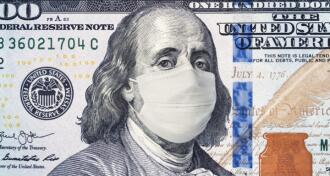
The IRS announced on Saturday, March 21, that it would move the U.S. income tax filing deadline for all taxpayers and businesses from April 15th to July 15, 2020.
More expansive than prior relief measures, the federal filing extension applies to all types of taxpayers (including individuals, trusts, estates, partnerships, associations, and corporations) and allows the deferral of income tax payments (including quarterly estimated income tax payments), without penalties and interest, regardless of the amount owed. The extension applies only to federal income tax (as opposed to gift tax and associated filings, for example) and is automatic, meaning that taxpayers do not need to file additional forms or contact the IRS to be eligible. Notwithstanding the extension, IRS officials are urging taxpayers to file their returns as soon as possible so that refunds can be issued—hoping that refunds might ease the financial hardships experienced by many Americans as a result of the COVID-19 crisis.
The North Carolina Department of Revenue followed suit, for the most part, issuing a notice on March 23, which provides that the filing deadline for state income and franchise tax returns originally due on April 15 will be extended automatically to July 15. These automatic extensions do not apply to sales and use or withholding taxes. Notably, the relief granted for North Carolina taxpayers is not quite as comprehensive as the federal relief, as state law prevents the Department of Revenue from waiving interest accrual on tax owing. Interest will accrue on all unpaid North Carolina state income tax from April 15 until the tax is paid. However, no penalties will be assessed for failing to pay tax when due if the payments are made on or before July 15.
It is important to note that while the aforementioned tax relief is broad and expansive, taxpayers should file their returns by April 15 if possible and consult with their licensed accountants and tax attorneys to determine the ramifications of filing (and paying) on extension in any particular case. While sure to be helpful for many Americans and businesses during these unprecedented times, it is foreseeable that the tax relief and associated taxpayer action could cause disruptions and irregularities in the financial status quo for those taking advantage of the relief who do not typically file and pay later than the 15th of April.
More information on the COVID-19 tax relief, including the complete notices and guidance published by federal and North Carolina tax authorities, can be found at: https://www.irs.gov/coronavirus and https://www.ncdor.gov/home/ncdor-actions-covid-19.
--
© 2024 Ward and Smith, P.A. For further information regarding the issues described above, please contact .
This article is not intended to give, and should not be relied upon for, legal advice in any particular circumstance or fact situation. No action should be taken in reliance upon the information contained in this article without obtaining the advice of an attorney.
We are your established legal network with offices in Asheville, Greenville, New Bern, Raleigh, and Wilmington, NC.








